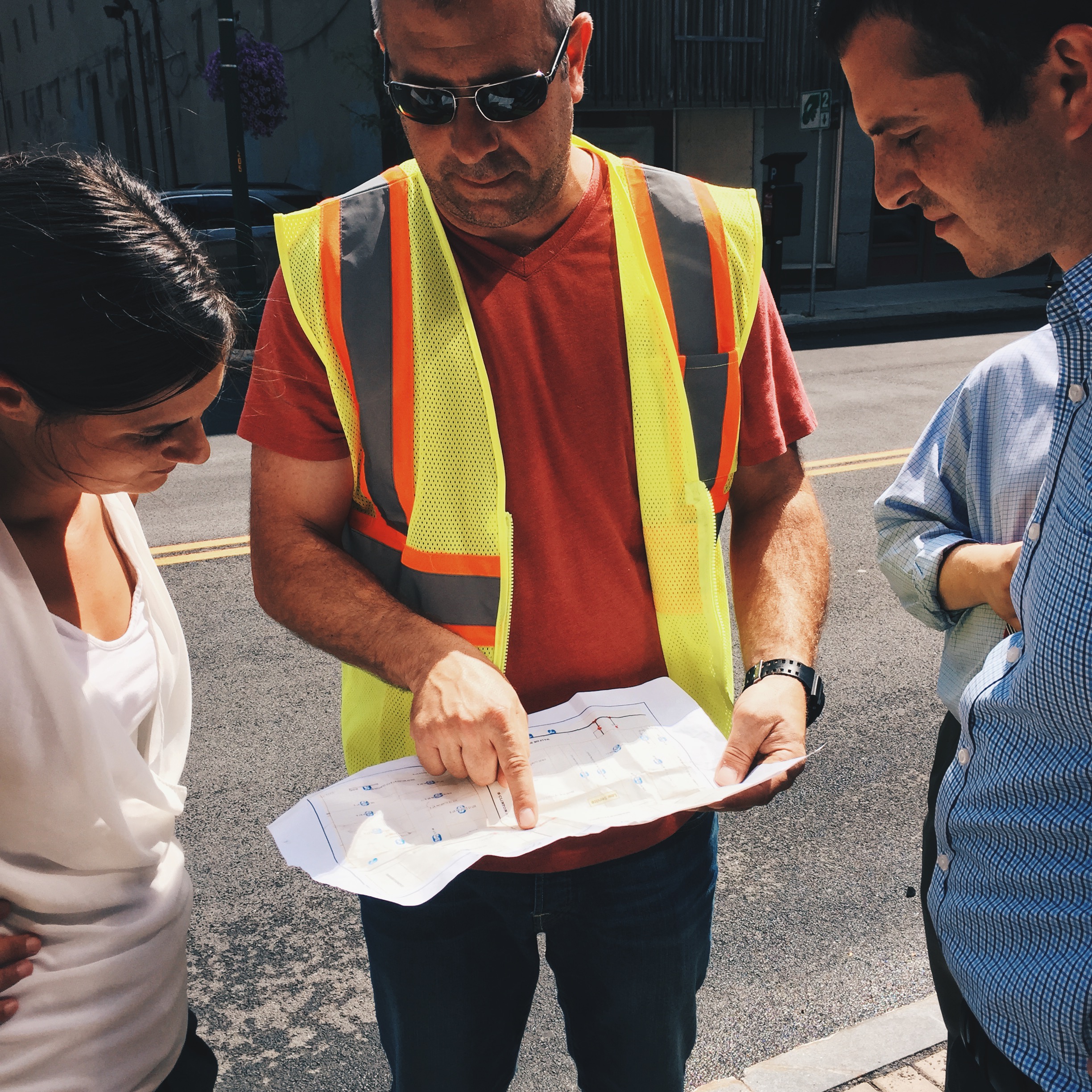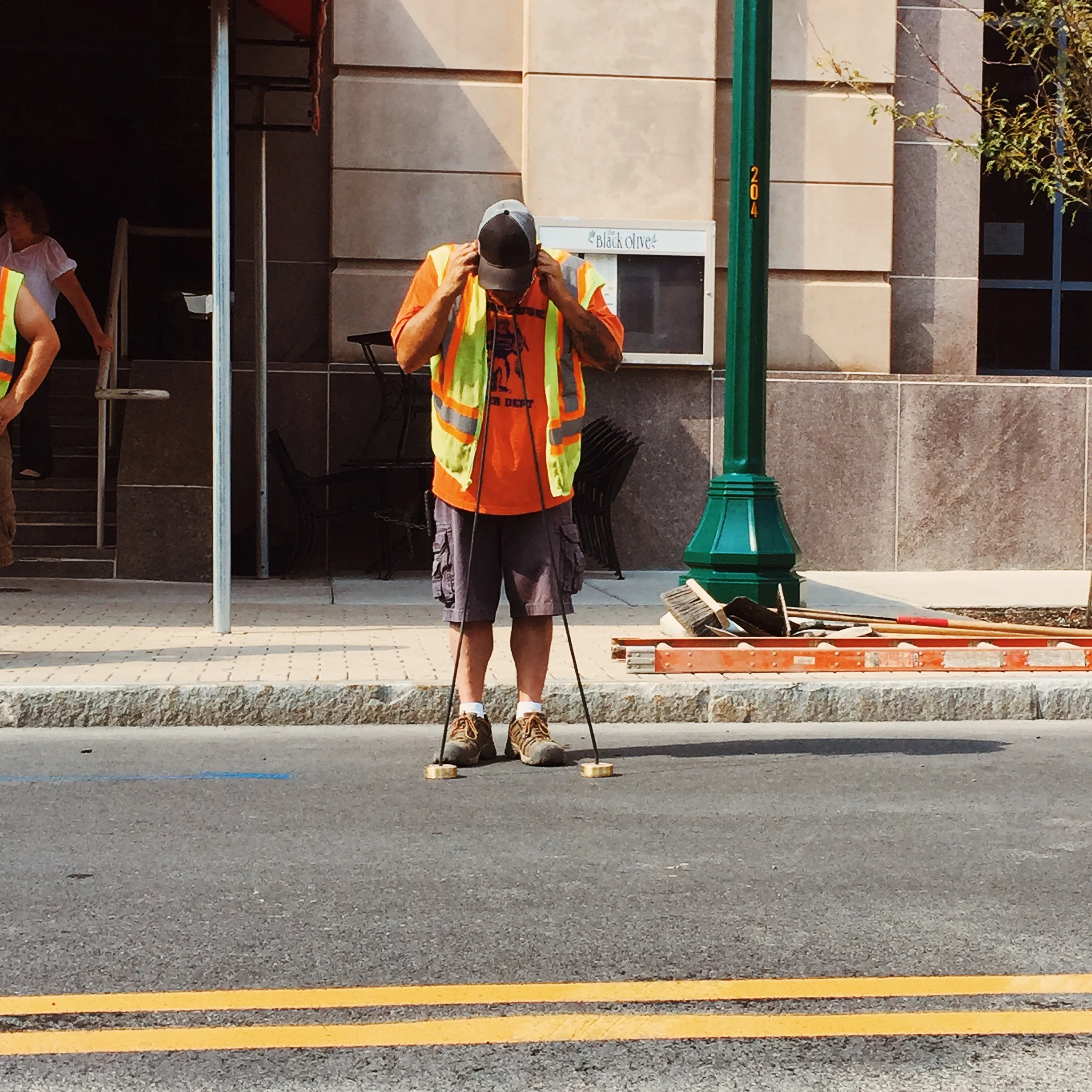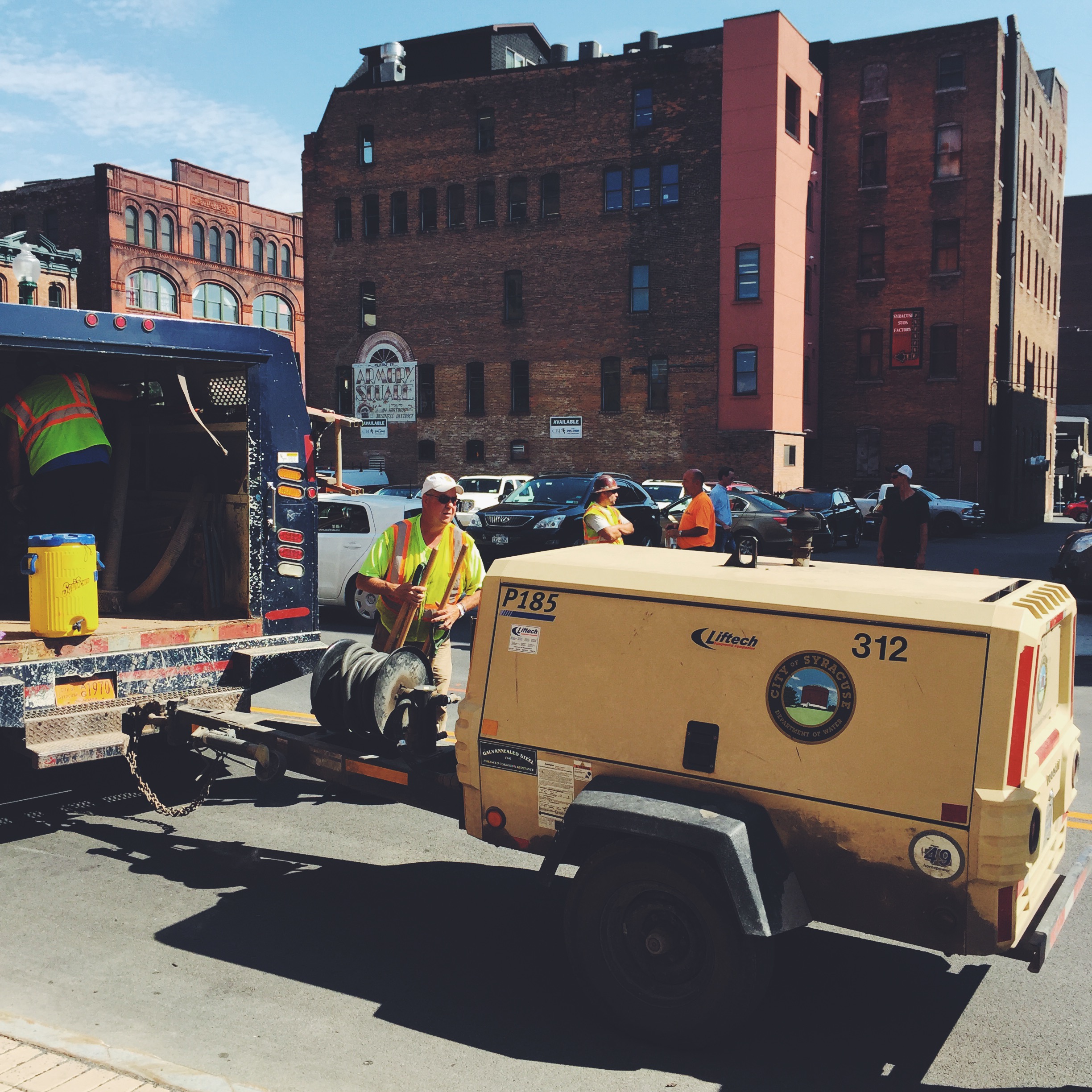Since our work is focused on improving the City of Syracuse’s infrastructure, our team knew it would be important to witness the repair of a water main break. While the exact time and location of a water main break is not very predictable, we knew that with hundreds of breaks occurring each year, we would have an opportunity before too long.
Unfortunately, we were right.
July 28th, on the 200 block of W. Fayette St., a water main broke, causing the Department of Water crew to shut off service to many restaurants and businesses on both Walton and Fayette Streets so they could do repairs. This break was only a couple blocks from City Hall, so the innovation team headed down to see the process.
A couple things we knew right off the bat:
This break happened at about 3 pm. The 200 block of W. Fayette Street would be closed, and would affect commuters driving through Downtown Syracuse.
The break happened right outside of Black Olive restaurant, and meant they would need to remain closed since they had no access to water.
Restaurants like Empire Brewing Co. were also out of water. Even though Empire is located on Walton Street, it receives water from the main on W. Fayette Street.
A long portion of Fayette Street was reconstructed as part of the Connective Corridor project. Though the road was redone, the water mains below were not. The road, which is about one year old, would be partially torn up.
The Department of Water crew got to work turning the valves to shut off water on the block. They also determined where they thought the leak was by listening using a device that looks like a stethoscope. Whenever any utility digs into the road, they need to wait for other utilities to confirm where their pipes and conduit lines sit. National Grid and Verizon came to mark off where their lines exist below the ground.
While the crew waited to start digging, a representative from Empire Brewing Co. came to learn about what was happening. He told the crew that the restaurant was in the middle of brewing beer, and they were at a stage in the brewing process where they needed cold water to cool down the brew. Without access to water, they would be forced to throw away the 250 gallons of beer they had been brewing (equal to thousands of dollars). Luckily, the crew from the Department of Water was able to turn the water back on, just long enough for Empire to finish this step in the brewing process; and save the beer! This event showed, clearly, that infrastructure has a direct effect on the economics of a community.
With everyone happy that they were able to help a local business, the crew started digging. This process took several hours. Once they reached the pipe, they applied the patch, but when water was pushed back through the pipe, it broke another part of the main. This happened twice more, and ultimately the main was replaced completely. The entire project took more than 24 hours.
Some things we learned:
A dig once strategy is critical. Projects should be coordinated so that if one utility is digging into the road, other utilities would also be able to maintain or update their own infrastructure. This is more efficient, and also prevents a road from being destroyed months after it was built.
The Department of Water crew works long, hard hours. They are experts in explaining and diagnosing the situation, but are in a constant race to get ahead of water main breaks.
Water main breaks are sudden, and cause water outages that require some businesses to close. The businesses that stay open are left without running water, air conditioning, and usable bathrooms.
Poor infrastructure has a negative effect on the local economy. Fewer people go out to eat or shop. Traffic is re-routed and slower. Employees might be forced to go home without pay (or the business pays employees even though they are closed).







